西班牙Hikari燒鳥餐吧
發布時間:2017年10月16日 點擊率:
Masquespacio近日展示了最新設計作品Hikari Yakitori餐吧,這是第二個來自Nozomi壽司餐吧創始人的項目,其位于瓦倫西亞的魯薩法區,與其第一間餐廳只有兩步之遙。
Masquespacio presents its last design for Hikari Yakitori Bar, the second project from the founders of Nozomi Sushi Bar, located in the same district of Ruzafa in Valencia two steps ahead from their actual restaurant.▽店鋪門面,Storefront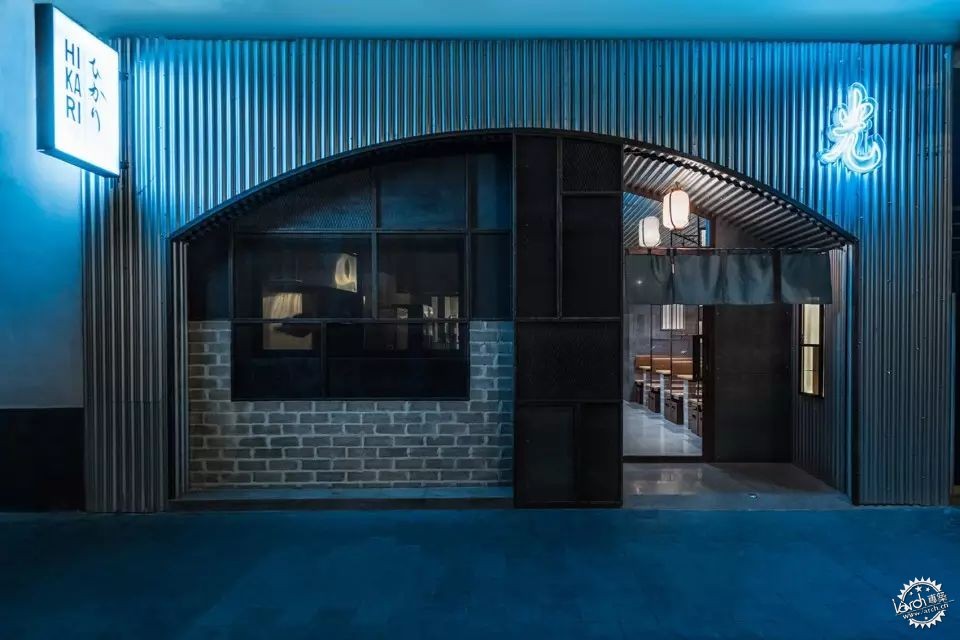
設計師想通過Hikari燒鳥餐吧引入新理念,背離傳統串燒吧的理念,如同Nozomi店將日本高速列車的名字懸掛在餐廳內。與之前的項目不同,此次室內由Masquespacio設計,其受到東京小巷Kabukicho, Omoide Yokocho y Hajimeya-燒鳥店的發源地的啟發。
This time they wanted to introduce a totally new concept through Hikari, Yakitori Bar, traduced literally in a skewers bar that as well as his big brother Nozomi carries on the name of a high velocity Japanese train. Differently to the previous project the interior designed by creative con-sultancy Masquespacio, has been inspired by the different quarters and alleys of Kabukicho, Omoide Yokocho y Hajimeya in Tokyo, where most of the of the yakitori bars are established.▽餐廳一覽,Overall view of the bar
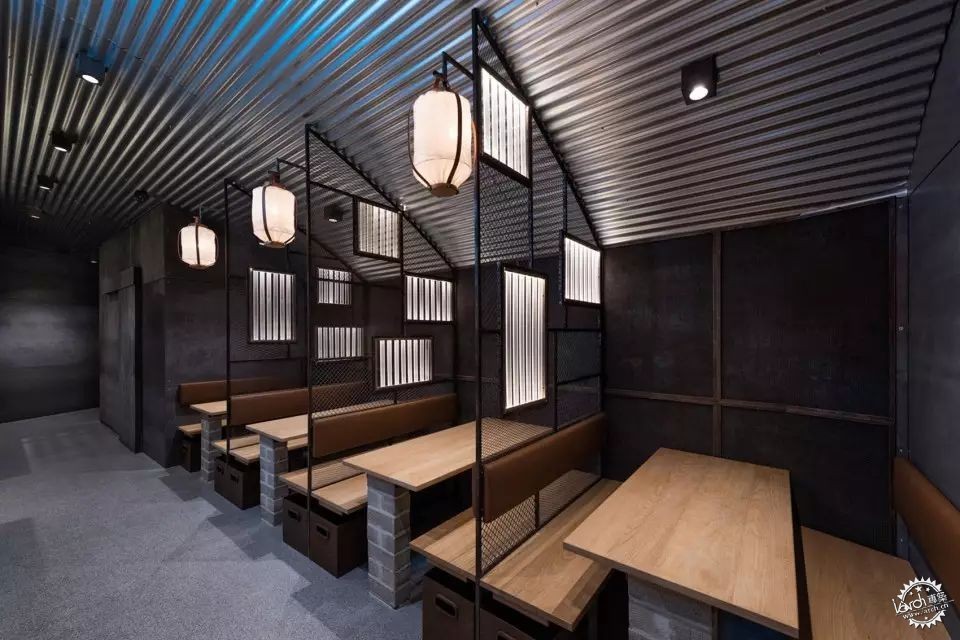
“我們將日本街頭最真實的煙火景象帶到餐廳中,同時改良了其視覺的美觀性。”
“We went to one of the most authentic neighborhoods from Tokyo bring-ing back their noise and smell, but reinventing their visual pollution”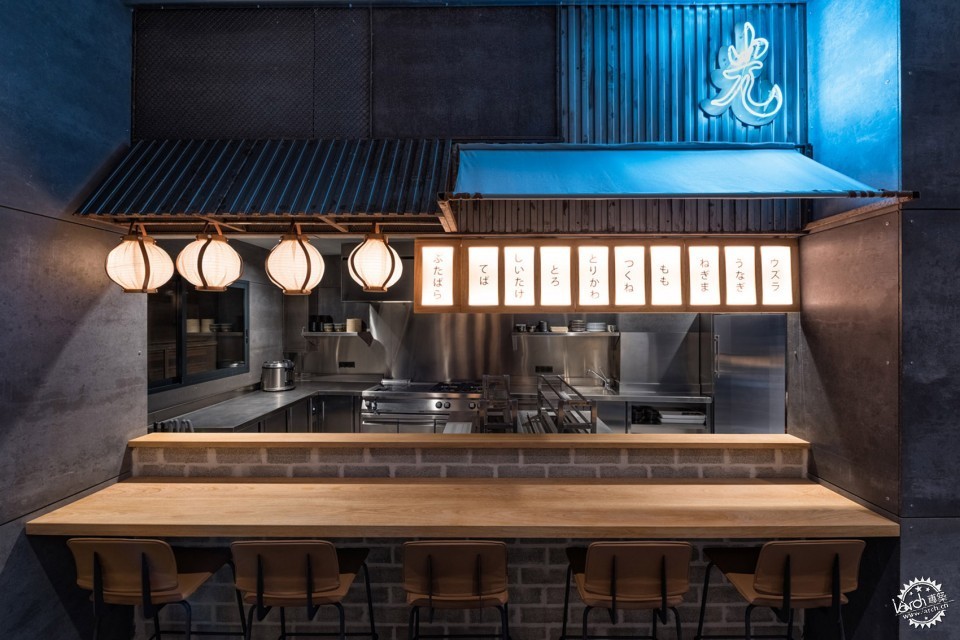
從建筑立面開始,設計師創造了一種東京街頭的真實感,使人可以立即辨認出并走進不拘一格的餐廳內部,欣賞昏暗的燈光和廚房忽明忽暗的火焰。室內從頭到尾都金裝人們的眼球。在這里,人們可以感受到高貴和工業材料的融合,傳統與現代的交融。
Starting from the fa?ade we can immediately recognize the entrance to one of Tokyo’s tunnels, that invites us to enter to the intimate and at the same time eclectic interior, that with the dimmed light and flames coming out of the kitchen catches the visitor from the beginning till the end. Here you can recognize straight away the fusion between noble and industrial materials, classic and contemporary, always through an own vision that clearly represents the identity from Nozomi’s company.
設計師運用單一的灰色和粗狂的質感以及溫暖的木材質來重現了Kabukicho, Omoide Yokocho y Hajimeya街道的感覺,并以此統領整個設計理念。
“The reinterpretation of the Kabukicho, Omoide Yokocho y Hajimeya alleys is done through a monochrome color scheme represented by grey and rusty finishes, as wall as a touch of wood that adds warmth to the overall concept. ”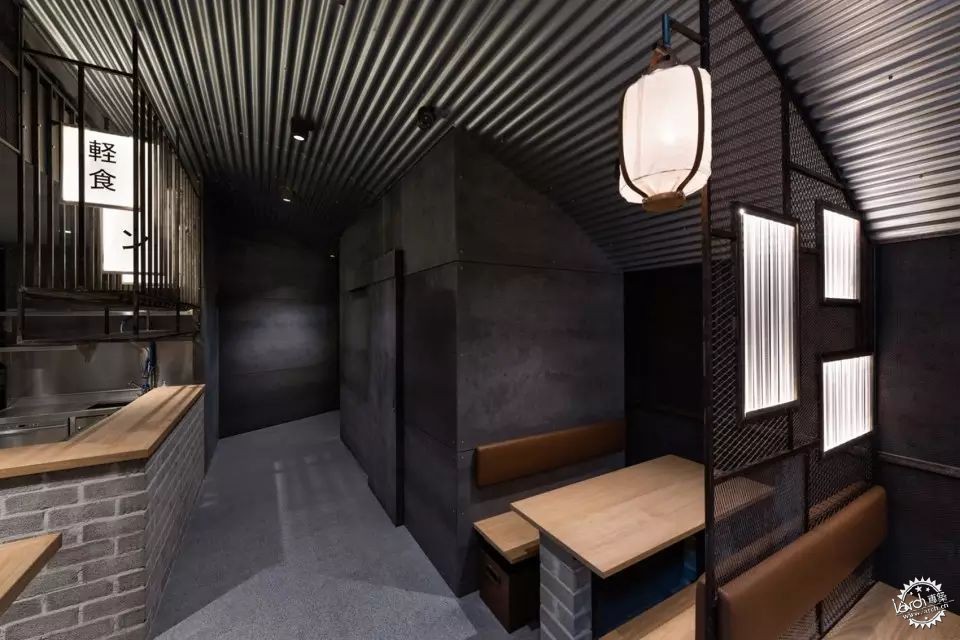
當人走到餐廳的盡頭,就能看到木材和混凝土與金屬的交融,傳統的燈籠在過道打下點點陰影。
“During our walk till the end of the tunnel we can see how wood is mixed with concrete and metal, while the classic lanterns cast a shadow of typical alley light in the corridors”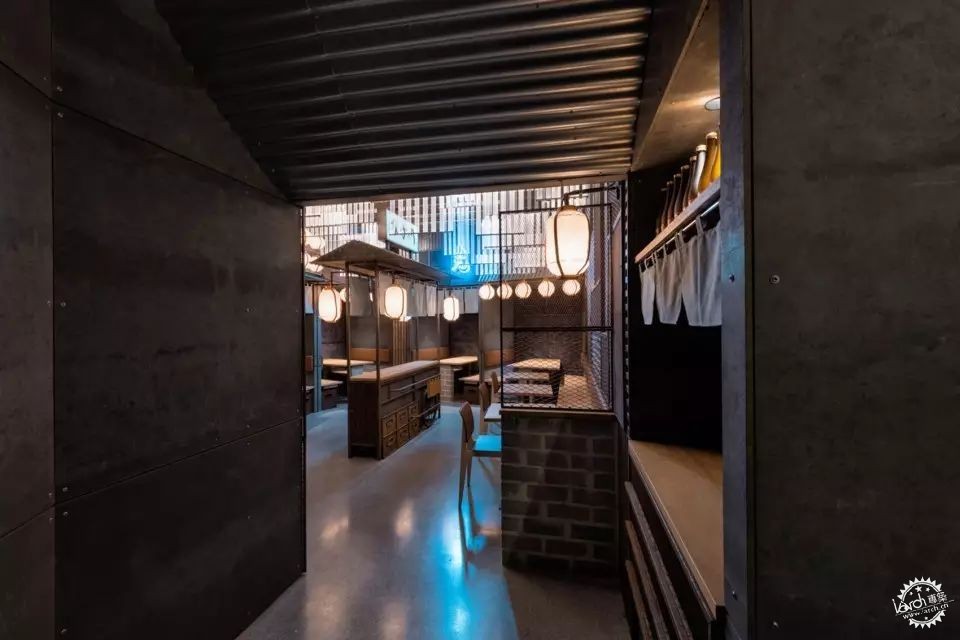
右轉便可以看到一個沒有出口的小廣場,能看到天花板上懸掛著的燈光板和來自日本首都著名商業區的小吃攤。在餐廳里被用作安置顧客的小房子。
Once turned right we can see a square without exit full of lighted boards that hang from the ceiling, a small food stand and a reinvention of the commerce of the famous district from the Japanese capital, here used like a set of small houses that settle the visitors of the restaurant.
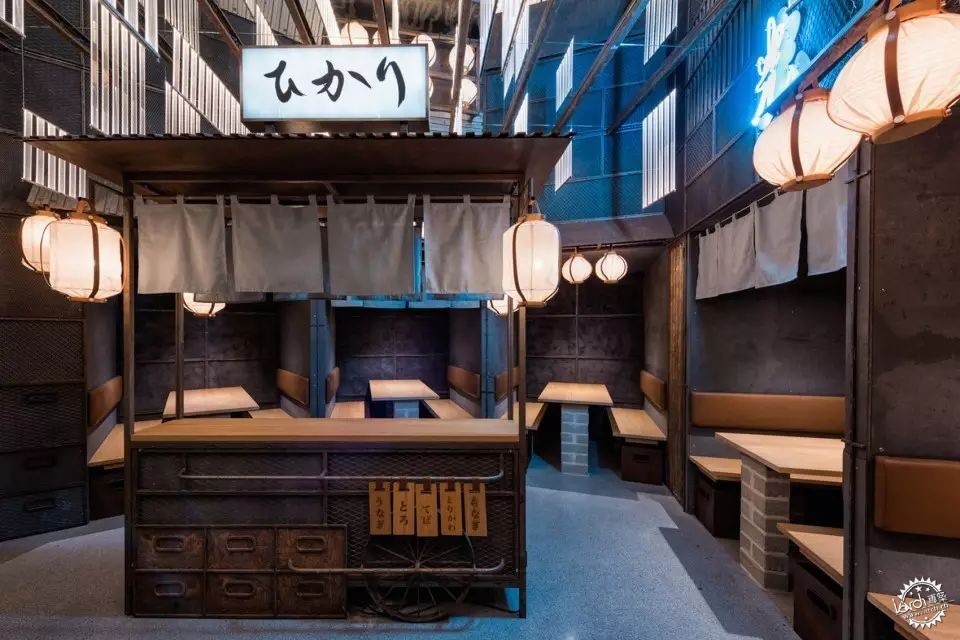
金屬,水泥和木材共同裝飾了這個小房子,在昏暗的燈光下,顧客可以在中心區域飽覽如同坐在日本城市街道一般真實的景象。
From the metal, cement and wood interior of the small houses, below a dimmed light, the visitor enjoys an overwhelming view on the central place full of contrasts like if they wear sitting in one of the most authen-tic streets of the Nippon city.
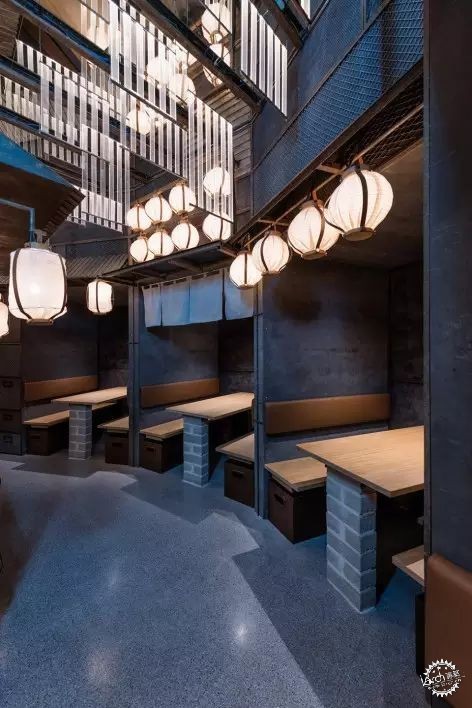
▽衛生間,Bathroom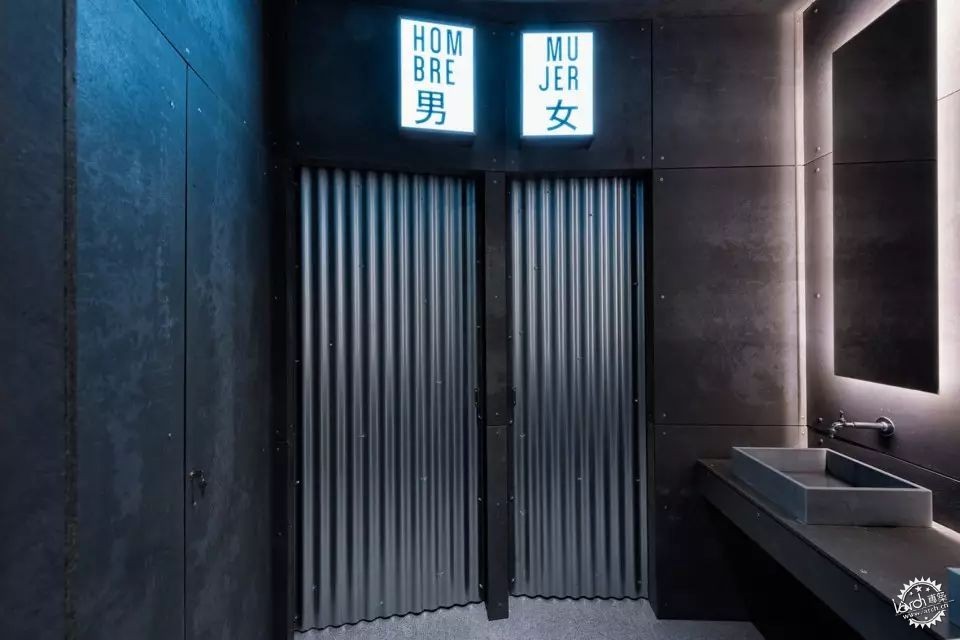
Credits:
Client: Hikari
Address: Calle dels Tomasos 18, 46006 Valencia
Art Director/Designer: Ana Hernández
Architect: Paula Pina
Architect junior: Jessica Alejos
Technical investigation: José Espejo
Graphic Design: Ana García
Photography: Luis Beltran
Materials:
Technical lighting: Onok Lighting
Decorative lighting (sculptures & lanterns): Masquespacio, local pro-duction
Concrete Wall finishes: Viroc
Metal grids: Masquespacio, local production
Cerrejeira wood: Maderas Blanquer
Granite floor: Terrazos Fuster
Neon signs: Masquespacio, local production
Chairs & bar stools: Ondarretta
Leather backrests: Original Contract
Fabrics & pirography: Masquespacio, local production
Construction: Helix
(該文章來源網絡,如有侵權請聯系15212443003,我們將第一時間進行刪除)



